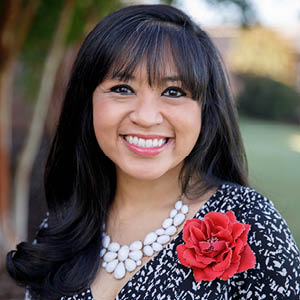
As a registered dietitian nutritionist, I’ve had the opportunity and honor over the past decade to help many of my clients in their recovery from an eating disorder. Though I don’t believe it’s a requirement for working in the eating disorders field, I’m often thankful for my firsthand experience of having my own eating disorder as a college student and being able to provide true empathy to my clients as someone on their treatment team.
Clients and their families often categorize eating disorder behaviors as a “food and exercise thing” especially when experiencing behaviors such as being restrictive or ritualistic about food, binging and purging after a meal, or over-exercising to compensate for food behavior. Dietitians can be the first line of intervention that is sought out when these problems happen. However, it is important for me to share with clients that eating disorders are first and foremost a mental health disorder and that a mental health professional and medical professional must be part of the picture. In fact, eating disorders have the second highest rate of mortality among any mental health disorder with nearly 1 person dying every 52 minutes as a direct result of their ED. In a society that emphasizes #dietculture in the most extreme ways, especially with the age of social media, it’s important to note that over 29 million Americans experience a clinically significant eating disorder during their lifetime. While women make up most eating disorder cases, eating disorders can occur across the gender spectrum. Some common types of eating disorders include Anorexia Nervosa, Bulimia Nervosa, Binge Eating Disorder, Other Specified Feeding or Eating Disorder (OSFED), Avoidant/Restrictive Food Intake Disorder (ARFID), and Pica.
Eating disorders are a complex condition stemming from complex situations. The etiology of an eating disorder can have genetic factors and social and environment factors that trigger the condition. Many of my clients have used their eating disorder as an unhealthy coping mechanism for something traumatic that has happened in their life such as a past sexual assault, death of a loved one, parents going through a divorce, or other stressful season of life. Eating disorders can often make an individual feel like food is the one thing they can “control” while the rest of their life and circumstances are completely out of control. I often encourage my clients to not thing of their eating disorder recovery as a straightforward linear process but instead as a construction zone that requires a team of professional and social support and lots of grace for ourselves in the process.
If you’re concerned about a loved one potentially having an eating disorder or disordered eating, having a private conversation to voice your concerns from a loving place is key. Resources such as the National Eating Disorders Association, the Alliance for Eating Disorders, and Eating Disorder Hope provide great information on how to have a caring conversation with a loved one and connect them to treatment.
Thank you Sheena for writing this educational post! Sheena Gregg, MS, RDN, LD is a registered dietitian nutritionist and Assistant Director of the Department of Health Promotion & Wellness at The University of Alabama. In addition to her work at UA, she manages a part-time private practice, Sheena Gregg Nutrition, focused on eating disorder recovery and helping her clients gain intuitive eating skills. She has served as president of the Alabama affiliate of the Academy of Nutrition and Dietetics as well as Chair of the Alabama Wellness Alliance. She is a past spokesperson for the statewide Scale Back Alabama program and has been quoted in USA Today College, Shape Magazine, and Women’s Health Magazine on the topics of fad diets, weight management, sports nutrition, and eating disorders. She currently serves on the expert panel for BestFoodFacts.org.
I would just like to remind everyone that you do not have to look any certain way. Everyone is beautiful just as they are. I encourage everyone to embrace their bodies and love themselves. Imperfection is perfection in my opinion! Remember there is help if you are struggling with an ED or any other mental health concern. We must continue to erase the stigma in order move forward as a society. Until next time remember to be kind and support one another!


